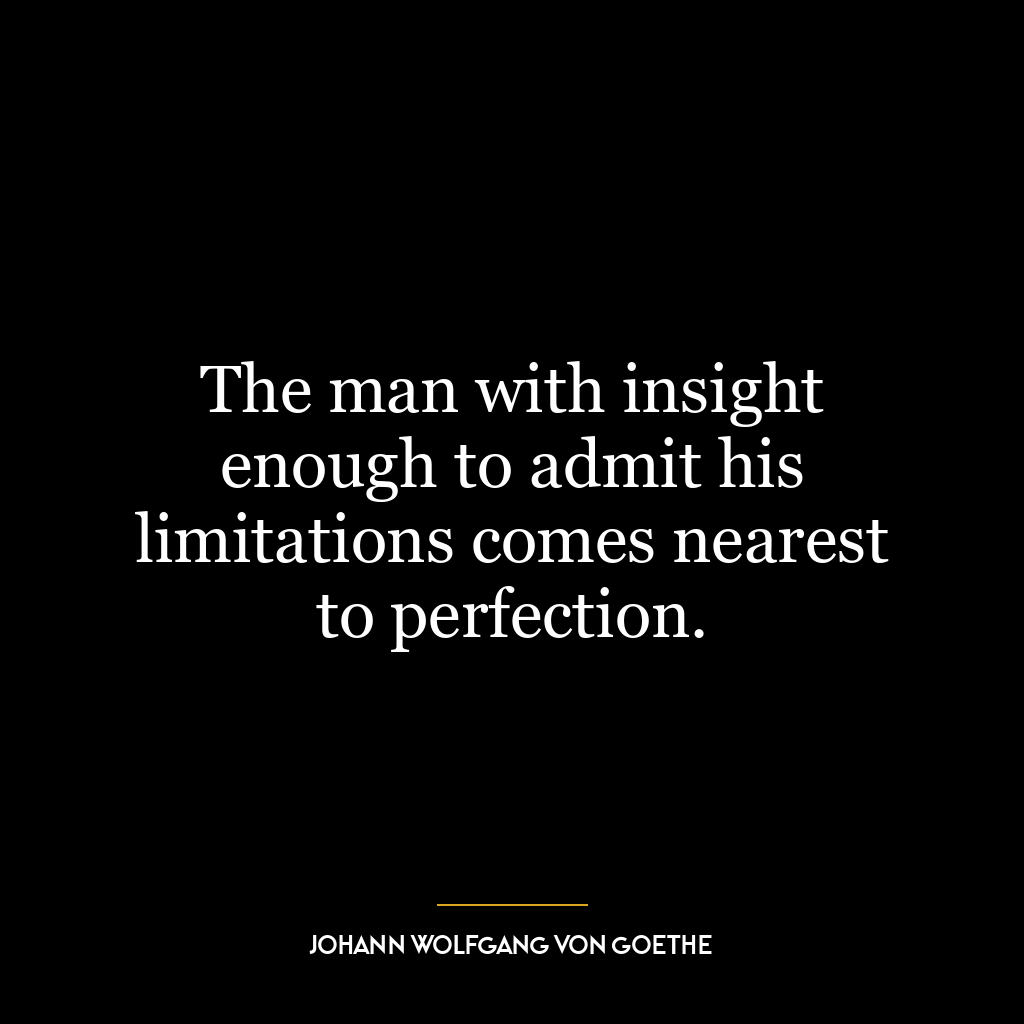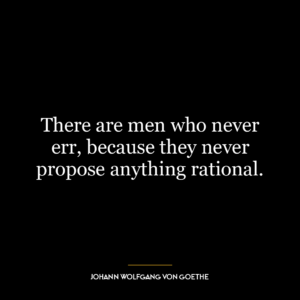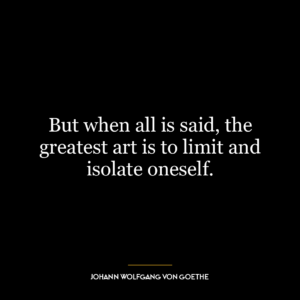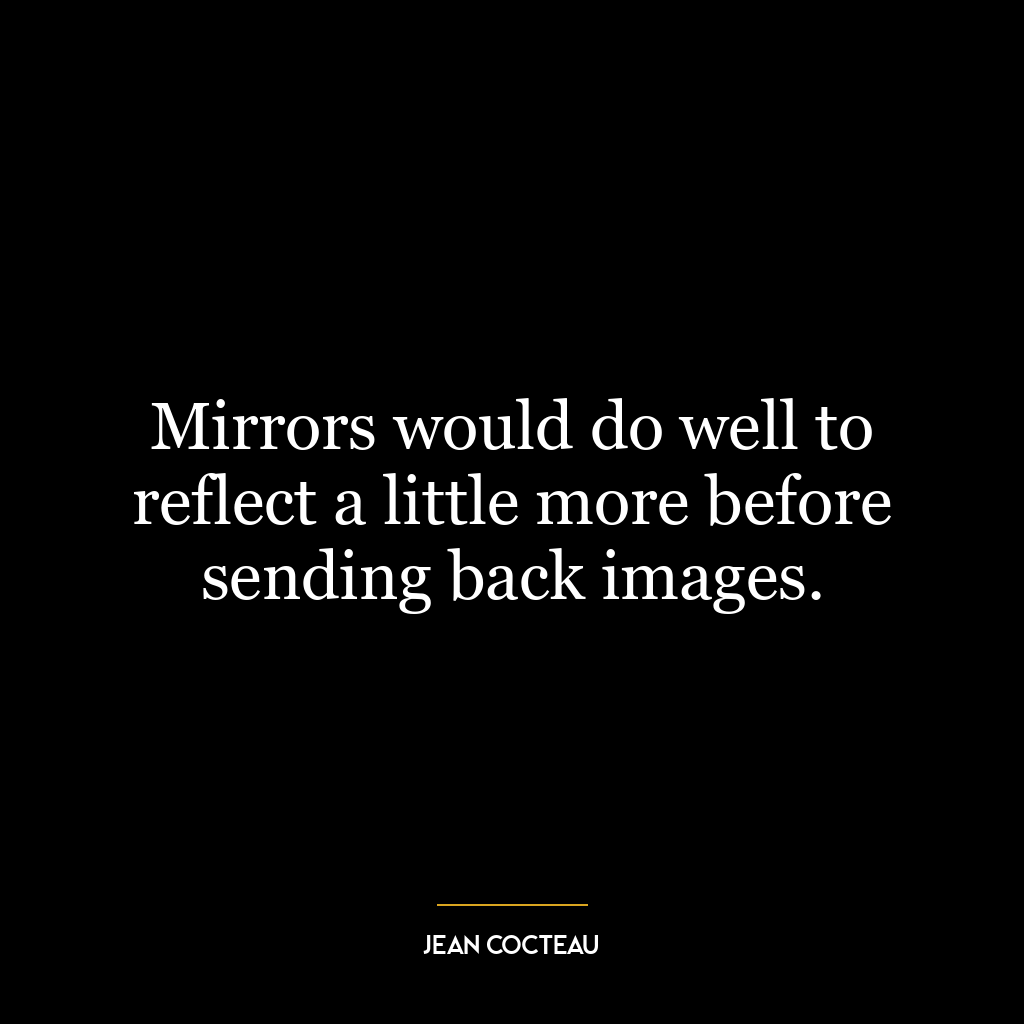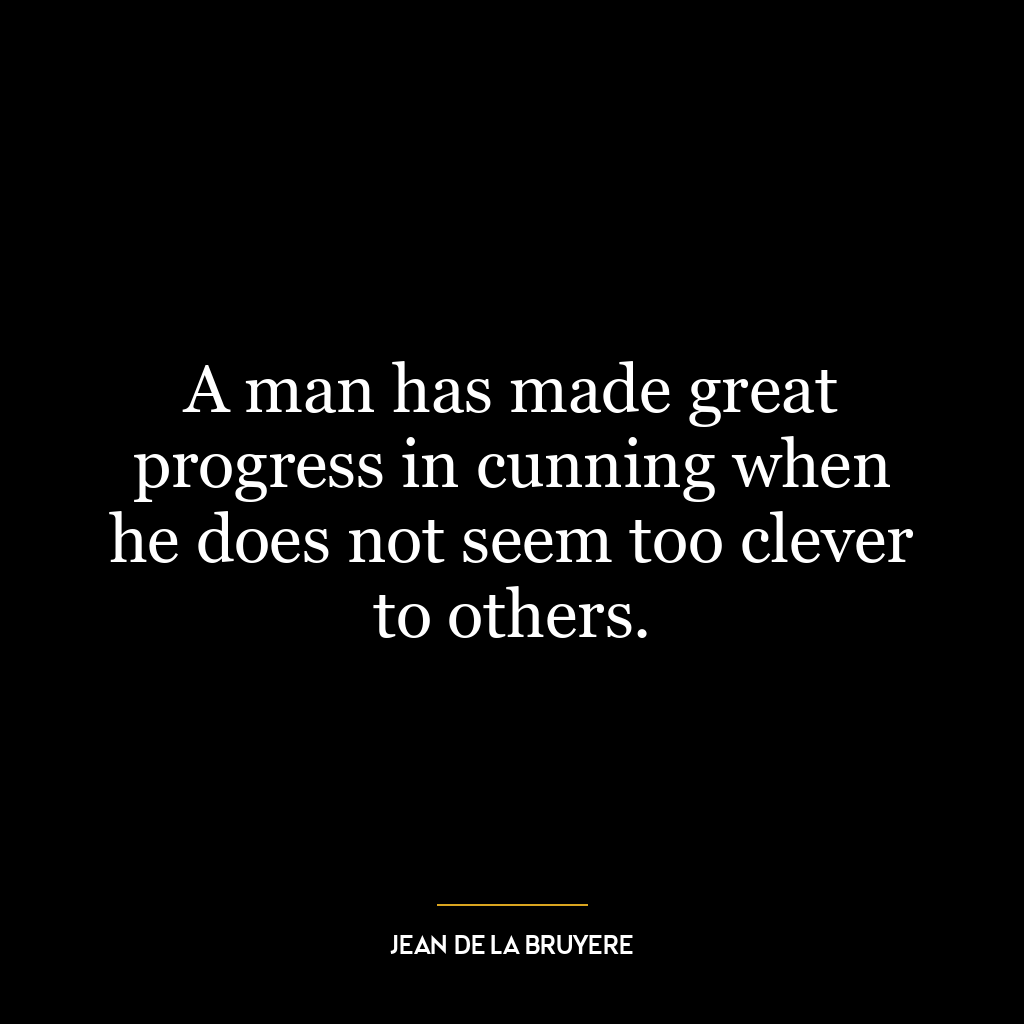This quote suggests that the man who is wise enough to acknowledge his own limitations is the one who comes closest to achieving perfection. It is a paradoxical statement that perfection is not about being flawless, but about recognizing and admitting one’s flaws. This insight is about humility, self-awareness, and the courage to accept our own imperfections.
The concept of perfection often creates a false illusion of being without any flaws or weaknesses. However, this quote challenges that notion by proposing that perfection lies in the acceptance of our limitations. To admit one’s limitations is to show a deep understanding of oneself, a quality that is rare and thus, closer to the ideal of perfection.
In the context of today’s world, this quote is incredibly relevant. In a society that often values perfection and success, admitting limitations is often seen as a sign of weakness. However, it is through the admission of our limitations that we can truly grow and improve. In personal development, acknowledging our limitations allows us to understand areas we need to work on.
For instance, if a person struggles with public speaking, admitting this limitation is the first step towards improvement. They can then seek resources, practice, and gradually improve this skill. This is far more productive and healthy than denying the problem and avoiding situations that require public speaking.
In essence, the pursuit of perfection should not be about denying or hiding our flaws but recognizing them. This gives us the opportunity to learn, grow, and develop, which is, in itself, a form of perfection.

